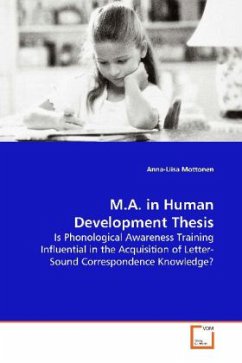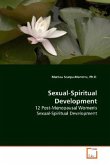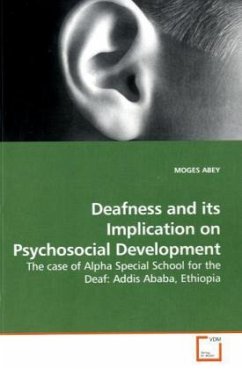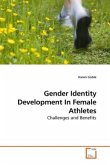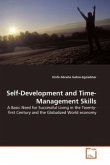This project was conducted to determine whether
training in phonological awareness leads to
significant improvements in letter-sound
correspondence knowledge. Subjects included 46
junior kindergarten students from low socio-
economic status schools in Sudbury, Ontario, Canada.
Subjects were screened using the PPVT-III (Peabody
Picture Vocabulary Test-III) and a letter name
knowledge test. Subjects were assigned to one of
three treatment groups: phonological awareness,
letter-sound correspondence knowledge, or
combination (phonological awareness and letter-sound
correspondence), or to a control group trained in
math knowledge. Subjects were trained in small
groups of two or three children for a total of 10 10-
minute sessions. Subjects were pre-, mid-, and post-
tested on math knowledge, phonological awareness,
and letter-sound correspondence knowledge.
Phonological awareness training did not lead to
significant improvements in letter-sound
correspondence knowledge, but letter name knowledge
was found to be a significant predictor of math
knowledge, phonological awareness, and letter-sound
correspondence knowledge measures.
training in phonological awareness leads to
significant improvements in letter-sound
correspondence knowledge. Subjects included 46
junior kindergarten students from low socio-
economic status schools in Sudbury, Ontario, Canada.
Subjects were screened using the PPVT-III (Peabody
Picture Vocabulary Test-III) and a letter name
knowledge test. Subjects were assigned to one of
three treatment groups: phonological awareness,
letter-sound correspondence knowledge, or
combination (phonological awareness and letter-sound
correspondence), or to a control group trained in
math knowledge. Subjects were trained in small
groups of two or three children for a total of 10 10-
minute sessions. Subjects were pre-, mid-, and post-
tested on math knowledge, phonological awareness,
and letter-sound correspondence knowledge.
Phonological awareness training did not lead to
significant improvements in letter-sound
correspondence knowledge, but letter name knowledge
was found to be a significant predictor of math
knowledge, phonological awareness, and letter-sound
correspondence knowledge measures.
